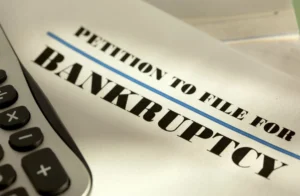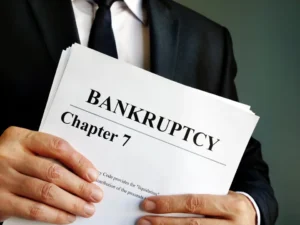If your small business is struggling to pay its bills, bankruptcy can help you restructure your debt so that you’re able to stay in business. Depending on how your business is set up, Chapter 11 or Chapter 13 bankruptcy may be options to keep your operations afloat. Keep reading for more information about bankruptcy relief for your business.
Qualifying for Chapter 13 Bankruptcy as a Small Business Owner
Chapter 13 bankruptcy is a type of consumer bankruptcy that requires you to pay a portion of your debts in exchange for the ability to keep your assets. However, if you run your business as a sole proprietorship, you can use Chapter 13 bankruptcy for relief from your business debts.
The reason for this is that as a sole proprietor, your business isn’t a separate legal entity. As the sole proprietor, you’re responsible for your personal debts and your business debts.
A Chapter 13 bankruptcy has advantages and disadvantages for a small business owner. It’s possible to exempt the value of some of your equipment and business supplies so that it doesn’t increase your plan payment. Chapter 13 bankruptcy is cheaper and less complicated than a Chapter 11 bankruptcy, and it usually takes less time to get your repayment plan approved.
However, the maximum length of time for a Chapter 13 plan is five years. If you have a lot of business debt, you may struggle to repay it during this timeframe. You’re also expected to contribute all your nondiscretionary income to debt repayment throughout the duration of your payment plan.
Using Chapter 11 Bankruptcy as a Small Business Owner
If your business is set up as a partnership, limited liability corporation (LLC), or corporation, Chapter 11 bankruptcy is your only option for debt relief through bankruptcy. Sole proprietors who have debt that exceeds the limits of a Chapter 13 bankruptcy can instead file for Chapter 11 bankruptcy.
Chapter 11 bankruptcy is only for businesses. It’s much more costly and complex than other bankruptcy options. It also takes longer to get a plan in place to restructure your debts. Due to these disadvantages, most sole proprietors should only consider Chapter 11 bankruptcy as a last resort.
A Chapter 11 bankruptcy allows you to alter your debt payments so that they’re more affordable. You can propose to lower the interest rates associated with your debt to lower your payments, or you might extend the repayment term for a loan. Or, if you simply don’t have the funds to repay your creditors, you can suggest lower balances for your debts.
During a Chapter 11 bankruptcy, you can sell some of your assets to repay your creditors. A bankruptcy court must approve any asset transfers. If you think you need to cease some of your operations to make your business profitable, this also needs to be approved by the bankruptcy court.
What to Do if Your Business Can’t Be Saved
In some situations, your business can’t be salvaged. Chapter 11 and Chapter 13 are designed to save your business and keep it running. If you decide that your best course of action is to close your business, you should consider a Chapter 7 bankruptcy.
If your business is a sole proprietorship, you may file for Chapter 7 bankruptcy and include your business debts in your filing. After liquidating your non-exempt assets, any remaining qualifying debt is discharged.
Though LLCs, corporations, and partnerships can also file for a Chapter 7 bankruptcy, their debts are not discharged. If you are personally liable for your business’s debts, you may have to file a Chapter 7 bankruptcy for both your business and yourself.
Need to explore debt reorganization options for your small business? Contact the Madden Law Firm for a consultation.





